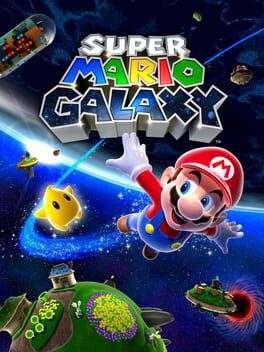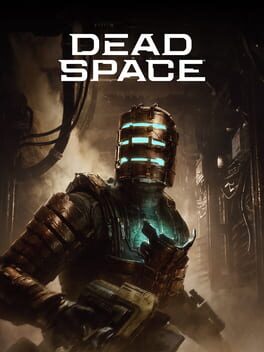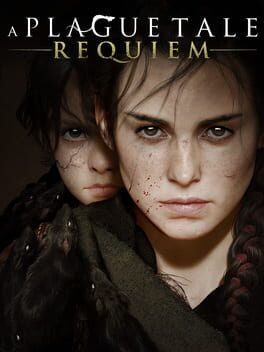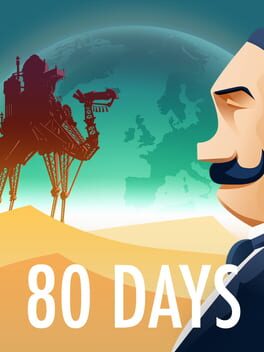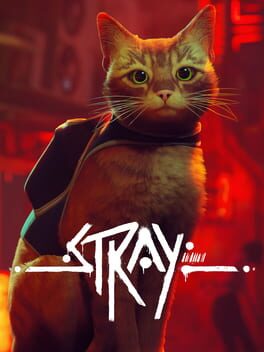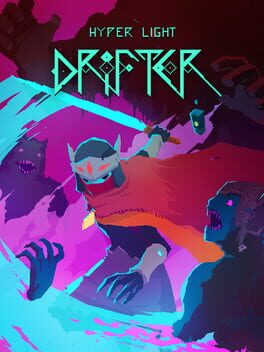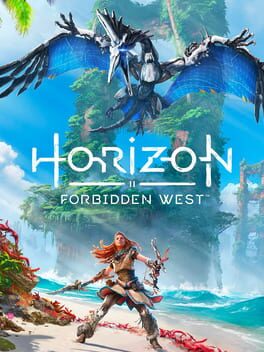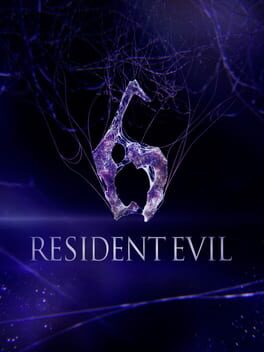chortles
74 reviews liked by chortles
It’s a nice bonus that the intricate and politically charged murder mystery plot is as thoroughly intriguing as it is; but for you, the protagonist of Disco Elysium, the main villain is yourself, specifically your (Ancient Reptilian) brain.
It’s an RPG in which the biggest obstacles can be just not saying the stupidest thing to a suspect, done through chance-based engagement with corners of your mind - logic, empathy, authority, volition, ‘inland empire’ (one of many Lynchian influences throughout) and many more.
Alongside the gorgeous painterly art style, the game’s key strength is its impeccable writing: the funny parts are funny, the narrator’s vivid descriptions are stirring, the characters and relationships feel incredibly real. It’s a game for people who love a really really really good book. Fuck it, Disco Elysium is literature.
Lastly, it’s just a gripping detective game in which piecing information together bares deeply satisfying results, and taking risks are, more often than not, met with rewards. A must play.
It’s an RPG in which the biggest obstacles can be just not saying the stupidest thing to a suspect, done through chance-based engagement with corners of your mind - logic, empathy, authority, volition, ‘inland empire’ (one of many Lynchian influences throughout) and many more.
Alongside the gorgeous painterly art style, the game’s key strength is its impeccable writing: the funny parts are funny, the narrator’s vivid descriptions are stirring, the characters and relationships feel incredibly real. It’s a game for people who love a really really really good book. Fuck it, Disco Elysium is literature.
Lastly, it’s just a gripping detective game in which piecing information together bares deeply satisfying results, and taking risks are, more often than not, met with rewards. A must play.
Super Mario Galaxy
2007
i didnt really expect this going in , but mario galaxy - with it's bombastic opening and incredibly typical saving princess peach plot - ends up being a very thoughtful and often melancholic rumination on both the wonder and loneliness of space.
this is in large part due to the incredible score, which delivers on all fronts. the majesty and unbridled joy of "Gusty Garden Galaxy" has been praised to the center of the universe and back, but the soundtrack also explores space in a more melancholic way. the theme of "Space Junk Galaxy" is a standout here, it really captures the beauty and loneliness of the universe's expanse.
of course this stuff goes beyond just the soundtrack. it's in how the game frames mario Galaxy's planets, clustered together, but still hanging adrift in space. it's in the domesticity and liveliness of the hub world, how all of the individual "observatories" in the game are actually the rooms of a house. and it's in the return from a level when you collect a star, and are rewarded with a moment of downtime.
at the end of the day it's still a mario game, it's still about saving princess peach, it still has an ontologically evil antagonist, and it still has dumb minigames and poor underwater controls. the gameplay - while being far beyond serviceable - didn't really do it for me either. but that's okay! because mario galaxy is an incredibly special game, and is so so much more than just the sum of its parts
this is in large part due to the incredible score, which delivers on all fronts. the majesty and unbridled joy of "Gusty Garden Galaxy" has been praised to the center of the universe and back, but the soundtrack also explores space in a more melancholic way. the theme of "Space Junk Galaxy" is a standout here, it really captures the beauty and loneliness of the universe's expanse.
of course this stuff goes beyond just the soundtrack. it's in how the game frames mario Galaxy's planets, clustered together, but still hanging adrift in space. it's in the domesticity and liveliness of the hub world, how all of the individual "observatories" in the game are actually the rooms of a house. and it's in the return from a level when you collect a star, and are rewarded with a moment of downtime.
at the end of the day it's still a mario game, it's still about saving princess peach, it still has an ontologically evil antagonist, and it still has dumb minigames and poor underwater controls. the gameplay - while being far beyond serviceable - didn't really do it for me either. but that's okay! because mario galaxy is an incredibly special game, and is so so much more than just the sum of its parts
Dead Space
2023
It's gloriously next gen as you'd expect visually, but like with a lot of these remakes, the issue is the last time I played the first game, it was 13 year old me and my beloved PS3, and my mind's eye sees the same gooey, gory grandiose here as from those years ago. Of course the original doesn't look as good as this one really but it plays incredibly similar. Kudos to the original for being so damn good in the first place. I guess the point of these remakes is that we can play them and not feel as old as they are, but honestly who cares.
Anyways it was good fun revisiting this claustrophobic nightmare once again. I hate to be that guy but I like the stoic silent PS3 Isaac better: more mystery = more sexy!
Anyways it was good fun revisiting this claustrophobic nightmare once again. I hate to be that guy but I like the stoic silent PS3 Isaac better: more mystery = more sexy!
The iconic rats are back, in a sequel that feels mostly like an extension of the first game’s plot and gameplay, albeit bigger, scarier and even more emotionally charged.
In much the same way that A Plague Tale: Innocence goes for that Last of Us movie-game drama feel, Requiem also favours the sparky sense of adventure of Uncharted, particularly in its mid-section. The game’s warmer moments and those of utter despair are better balanced, with each character given more defined emotions and inner conflicts, particularly the main heroes Amicia and Hugo. The writing of the characters has also improved: Hugo is somehow less annoying than before; there’s a real sense that the siblings are going through their own personal hell in finding peace amidst apocalyptic rat-riddled cities under control of imperial tyrants.
Innocence’s strengths are improved even further here. The puzzles of navigating hordes of rats manage to evoke similar feelings of dread and disgust while also being fun and constantly inventive - not only are they different enough from the first game, but adapt in interesting ways over the course of this one. The player is also given different possible methods of getting past rats and enemy soldiers alike, allowing a great deal of freedom, although some stealth sequences can be frustratingly tricky, leading to a simple rush through the map. Still, the level design is as beautiful as ever, encouraging the player to explore impressively vast stretches of land one minute, then struggle their way out of a nightmarishly endless cavern of those gooey rodent bastards the next.
Whilst the plot is engaging throughout, I’m unfortunately one of those people who found the ending, which I won’t spoil, to be underwhelming. The third act in general, while indeed fun to play, feels muddled and rushed in comparison to almost expert build up in the first two thirds. After hours of character development, the ending ultimately feels unjustified and… abrupt! Perhaps it’s the intention of the game to have that effect on the player, but I’d argue it doesn’t work in the same way as something like The Last of Us Part II.
That said, and it may not be too dissimilar from its predecessor and other games in its genre, but A Plague Tale: Requiem ranks as one of the most polished horror adventure titles in recent years, with moments both chilling and moving. It’s also quite an achievement to make something so incredibly bleak so fun and engaging to play.
In much the same way that A Plague Tale: Innocence goes for that Last of Us movie-game drama feel, Requiem also favours the sparky sense of adventure of Uncharted, particularly in its mid-section. The game’s warmer moments and those of utter despair are better balanced, with each character given more defined emotions and inner conflicts, particularly the main heroes Amicia and Hugo. The writing of the characters has also improved: Hugo is somehow less annoying than before; there’s a real sense that the siblings are going through their own personal hell in finding peace amidst apocalyptic rat-riddled cities under control of imperial tyrants.
Innocence’s strengths are improved even further here. The puzzles of navigating hordes of rats manage to evoke similar feelings of dread and disgust while also being fun and constantly inventive - not only are they different enough from the first game, but adapt in interesting ways over the course of this one. The player is also given different possible methods of getting past rats and enemy soldiers alike, allowing a great deal of freedom, although some stealth sequences can be frustratingly tricky, leading to a simple rush through the map. Still, the level design is as beautiful as ever, encouraging the player to explore impressively vast stretches of land one minute, then struggle their way out of a nightmarishly endless cavern of those gooey rodent bastards the next.
Whilst the plot is engaging throughout, I’m unfortunately one of those people who found the ending, which I won’t spoil, to be underwhelming. The third act in general, while indeed fun to play, feels muddled and rushed in comparison to almost expert build up in the first two thirds. After hours of character development, the ending ultimately feels unjustified and… abrupt! Perhaps it’s the intention of the game to have that effect on the player, but I’d argue it doesn’t work in the same way as something like The Last of Us Part II.
That said, and it may not be too dissimilar from its predecessor and other games in its genre, but A Plague Tale: Requiem ranks as one of the most polished horror adventure titles in recent years, with moments both chilling and moving. It’s also quite an achievement to make something so incredibly bleak so fun and engaging to play.
80 Days
2014
When I first played this just after it launched, I was blown away by how gracefully it interwove narrative and mechanical interests to inspire a feeling of wonder and infinite possibility. In the eight years since then, I've often compared it to other "modular narrative" games that also try use mechanics to allow players to guide themselves through story, and almost every time found 80 Days to come out on top.
Eight years is a long time, though, and I began to wonder if I might be remembering this game as more magnificent than it actually was—and thereby holding other games to not just a high standard, but an impossible one. So I decided to boot it up again on its 8th anniversary and see how well it held up.
Dear readers, it held up well. It really is true that almost nothing I've played since builds a self-guided narrative so effectively (with Sunless Skies being one notable exception). The formula itself isn't very complex: have many places that the player can traverse non-linearly; give each place (and each route between) them its own little micronarrative; create occasional connections between these narratives; and tie all of these into a simple resource system. But this simple formula gives rise to an incredible sense that every run is its own unique story told in tandem by the player and the game.
Eight years is a long time, though, and I began to wonder if I might be remembering this game as more magnificent than it actually was—and thereby holding other games to not just a high standard, but an impossible one. So I decided to boot it up again on its 8th anniversary and see how well it held up.
Dear readers, it held up well. It really is true that almost nothing I've played since builds a self-guided narrative so effectively (with Sunless Skies being one notable exception). The formula itself isn't very complex: have many places that the player can traverse non-linearly; give each place (and each route between) them its own little micronarrative; create occasional connections between these narratives; and tie all of these into a simple resource system. But this simple formula gives rise to an incredible sense that every run is its own unique story told in tandem by the player and the game.
Stray
2022
I went into this game mostly blind, only having seen the original teaser when it was announced. I had no idea that this game was going to be as deep and captivating as it was.
I won't spoil anything here, but there is more to this game than just being a cat. Much more.
Painstakingly crafted, detailed environments.
Simple and easy to understand gameplay that allows you to immerse yourself in the world.
Atmospheric, quirky synth music.
Incredibly well-written and lovable characters.
And to top it all off, a super intriguing and mysterious story that unfolds into a well-earned payoff and an important message.
This game runs about 5-6 hours long, so it's not that huge of a commitment. You could comfortably complete it in a weekend.
I won't spoil anything here, but there is more to this game than just being a cat. Much more.
Painstakingly crafted, detailed environments.
Simple and easy to understand gameplay that allows you to immerse yourself in the world.
Atmospheric, quirky synth music.
Incredibly well-written and lovable characters.
And to top it all off, a super intriguing and mysterious story that unfolds into a well-earned payoff and an important message.
This game runs about 5-6 hours long, so it's not that huge of a commitment. You could comfortably complete it in a weekend.
Hyper Light Drifter
2016
I was watching a bunch of game trailers and came across the release trailer for Hyper Light Drifter and was immediately drawn in by the mysterious visuals and the deliberate, foreboding synth ambience. The atmosphere in this game is so cool. There is no dialogue, so any lore to be unearthed is delivered in either slideshows or a cryptic alphabet that I didn't even know could be translated until I watched a YouTube video about it.
The map was confusing, the upgrade system didn't click until I started collecting the little upgrade chips and made the connection, and the purpose of the game wasn't clear until I activated the first obelisk. At first, I was a bit put off by it. I'm no stranger to vague lore and mechanics, hell, Dark Souls is one of my favorite series, but even that had dialogue and item descriptions you could go off of. However, Hyper Light Drifter is a game in which you could wander off in any direction and end up making progress, so in the end, I didn't mind the vagueness. I just started exploring and fighting things, and before long, I knew what I had to do, I understood how to upgrade things, and I even figured out how the map worked.
The gameplay is pretty simple. You have a sword, and you have a gun. Hit things to recharge your gun. Pick up life packs and use them when you need a heal. Simple, but it feels good. Combining sword combos with gun attacks feels great, and taking on a horde of enemies and seeing the drifter victoriously stab his sword into the ground is super satisfying. Boss fights are pretty fun. In terms of difficulty, it can be a bit challenging at times, but nothing super crazy. Dying is either a non-punishment, or it resets you to a pretty far back checkpoint. Just depends on the level.
Overall though, I had no idea what was happening story-wise, but I loved how it looked, sounded, and felt, so I ended up really enjoying it! I wanted more once I got to the end.
Definitely will recommend this one, especially since it's decently short. Apparently you can do co-op but I haven't tried it yet.
The map was confusing, the upgrade system didn't click until I started collecting the little upgrade chips and made the connection, and the purpose of the game wasn't clear until I activated the first obelisk. At first, I was a bit put off by it. I'm no stranger to vague lore and mechanics, hell, Dark Souls is one of my favorite series, but even that had dialogue and item descriptions you could go off of. However, Hyper Light Drifter is a game in which you could wander off in any direction and end up making progress, so in the end, I didn't mind the vagueness. I just started exploring and fighting things, and before long, I knew what I had to do, I understood how to upgrade things, and I even figured out how the map worked.
The gameplay is pretty simple. You have a sword, and you have a gun. Hit things to recharge your gun. Pick up life packs and use them when you need a heal. Simple, but it feels good. Combining sword combos with gun attacks feels great, and taking on a horde of enemies and seeing the drifter victoriously stab his sword into the ground is super satisfying. Boss fights are pretty fun. In terms of difficulty, it can be a bit challenging at times, but nothing super crazy. Dying is either a non-punishment, or it resets you to a pretty far back checkpoint. Just depends on the level.
Overall though, I had no idea what was happening story-wise, but I loved how it looked, sounded, and felt, so I ended up really enjoying it! I wanted more once I got to the end.
Definitely will recommend this one, especially since it's decently short. Apparently you can do co-op but I haven't tried it yet.
Perfectly playable, a billion-dollar polished sheen in service of unimaginative game design. Look, not every game needs to break new ground, but FORBIDDEN WEST would have been dated in 2018. It's a cluttered pile of compromises; it doesn't commit to open-world realism (RDR2, Death Stranding), nor spatial boundlessness and narrative minimalism (BOTW, Elden Ring). Let me feel the thrill and danger of hunting and crafting, please challenge me to tread the vastness of the terrain. A game so ensnared by ecological themes should by all means structure its core gameplay loops around this dance, around this duality of man and nature – the alternative, what we have here, just leaves me cold. Traversing its world becomes a matter of formality in between the story missions, a story revolving around not just saving, but preserving, cherishing, that very world, and the life it bears. If you want to create a world oscillating between resplendent beauty and danger, don't mark machine-territories on the map like a Far Cry game – just let me stumble into the lion's den, and then provide the players with the tools necessary to engage that challenge. The players will remember that location next time, and can then choose to avoid it or tackle it head-on. Providing total clarity of your surroundings (through either the Focus or the map, or worse still, Aloy herself) destroys the world, it defiles the core tenet of its themes. More than that, it makes the game a slog to play through.
Resident Evil 6
2012
For the sake of my own sanity, I'm done with this. Started well enough, but spiraled into utter cacophony quickly. If anything good came out of this, it came in the form of Capcom's complete 180 on the franchise, and perhaps that the non-linear narrative criss-cross helped them know what not to do with Devil May Cry V. Other than that this is baffling in all the wrong ways. It's like an AI-generated Resident Evil 4 and 5 mashup; squint and it's sort of a finished video game with clear design decisions and thematic ideas, but if you stop squinting it self-destructs like an old spy-movie letter. It wore me down, grinded my initial enthusiasm into powder, until I was so sick of it by the time the credits rolled for Leon's campaign (which, judging by the other campaigns, is the best of the four) that I have to put this down. At least for now. I've spent over 15 hours pushing my way through this monstrosity, and I don't dislike myself nearly enough to let myself continue for another 15 in this economy.
There’s some stuff going around which is completely false, namely the story about Druckmann humping Laura Bailey in a mocap suit (which someone photoshopped her tweeting about and she had to come out and shoot it down). There’s also rumours about it being transphobic which I really don’t agree with and I think were at least somewhat overblown. I thought the trans character was handled really well, and the trauma he faced due to his gender identity was alluded to and discussed in dialogue but never directly shown, which was a nice restraint for an otherwise very disturbing game. I’m not trans, so of course I’m not an expert on this and maybe I’m missing something, but I thought it was respectfully done. The review bombing in general is ridiculous, and all the misinformation has led to a lot of toxic and polarizing discourse, which for the most part I think has been unwarranted. It’s also the gayest major video game out there which I’m 100% here for.
Gameplay wise, the best thing Naughty Dog has made in ages, maybe ever. The stealth is vastly improved, and actually a viable option for the majority of encounters now. Hiding in tall grass and bushes isn’t a binary invisibility but a layered system based on proximity and movement. Instead of everyone just instantly knowing your position when you’re spotted, there’s a caution phase where enemies will be on higher alert and search your last known position. The crafting is expanded even further from the first game, allowing you not only to craft explosives and ammo for combat encounters but also further options for stealth, such as makeshift silencers and arrows for the bow. As before, crafting one item often comes at the direct cost of another, and many of these choices are suited to either stealth or action, only now there's even more such choices you have to make. Fights between multiple factions allow you to pit your enemies against each other, tossing throwables to draw them together and stir the pot, occasionally thinning the herd from the shadows.
There’s also more depth to the progression system this time around, with character upgrades attached to various perk trees that are gradually acquired throughout the game instead of just a list that you can tackle in any order, requiring you to actually put some level of planning in to get the stats you want, and with more variety than the typical combat/stealth/resources trio that a lot of modern games have. It’s still a pretty straightforward system, nothing super in depth, but it’s a welcome addition to flesh out the gameplay a little more, and fits nicely into the more methodical, preparation based encounters of the game.
The level design is also a huge step up, often featuring multiple routes through encounters. There’s even some more open areas, with optional locations that have their own sectioned-off combat scenarios. Unlike Uncharted 4, where I felt the open areas where neat but didn’t offer much in the way of incentive to explore, these parts of Last of Us 2 often have additional upgrade materials for perks, weapon upgrades, and even new guns, directly rewarding your exploration on a tangible gameplay level, as well as fleshing out the games’ environmental storytelling chops. Human enemies are smarter than in the first game, and the Seraphites even have their own creepy whistling system that impacts how quickly they’re able to notice you. The weapon upgrade system is basically the same thing as the first game, though additional holsters are now moved over to exploration instead. The infected have a few new enemies types, but for the most part they play quite similarly to the first game. Overall, it’s a lot of fun to play, and even if the story doesn’t grab you I think the game is worth picking up for the combat. It’s not gonna win over people who don’t like Uncharted or Last of Us 1, but for those who do it’s the best iteration of Naughty Dog’s TPS gameplay loops.
As with the first game, the big explosives setpieces are spaced out more so than the Uncharted games, making them more impactful when they do come around even though they’re smaller in scope. ND does a great job blending cutscene and gameplay here, so much so that I was occasionally telling myself “nah this can’t be running in real time it looks too damn good” only to be greeted with a QTE prompt 2 seconds later. God, this game looks great. Probably the most visually impressive game I’ve ever played (though I’m yet to get around to Red Dead 2), not only on a technical level, but also an artistic one, with the lighting reflecting and contrasting the mood of particular scenes, unending natural beauty punctuated by the evil that humans do to each other. The animations are incredibly detailed without being overlong and interfering with the gameplay too much, which is something I find ND is really good at in general. The music, performances, writing, and cutscene direction continue to be some of the best in the medium, pushing interactive storytelling into new and unconventional places.
Narratively, I understand why the game is so much more divisive than the first one: it’s challenging material that makes you feel bad and questions the very core of its characters, featuring a Pulp Fiction-y non-linear structure that puts you in the shoes of characters you thought you hated. I don’t think it’s trying to be directly critical of the player for their use of violence, rather it’s deconstructing why the protagonists choose to inflict such pain at all. There’s no big picture, no cure for the survival of the human race, just people, vengeance, and civil war. As with the ending of the first game, it’s often about the hateful things done for love, selfishly destroying everyone in your path to protect loved ones, even if it costs the world and ends up destroying the relationship with your loved ones that drove you in the first place.
Many have criticized this game for its lack of levity, and that’s somewhat true, but only in the back half of the narrative, and though it is depressing there’s very much a thematic purpose behind it. The flashbacks and happy moments early on in the narrative establish what characters are leaving behind in their quests for revenge, but also what was taken from them to stir that desire for vengeance in the first place, a web of violence and trauma becoming more and more tangled by self destructive tendencies until they have nothing left.
The story is hardly ‘fun’ in any kind of traditional sense, even though the gameplay is. It cuts deep, leaving scars on the cast that will perhaps never heal. It could’ve just been Joel and Ellie adventure 2.0, which it seems is what a lot of people wanted, but this is so much more daring, unique, and interesting that I have a hard time imagining how straightforward replication of the first’s formula could’ve been better (and I don’t mean this in a derogatory way, at least not completely, I love Uncharted 2 and that’s basically just the first game but bigger and more better). The Last of Us is not a brand that got its acclaim by playing it safe and giving us formulaic fun adventures. The reason the original stood out in the first place is because it dared to slow down and let you feel, building a deeply flawed protagonist who obviously does the wrong things, but making you care about him anyway. A game that just did what we expected from it would not be a worthy successor to The Last of Us.
Gameplay wise, the best thing Naughty Dog has made in ages, maybe ever. The stealth is vastly improved, and actually a viable option for the majority of encounters now. Hiding in tall grass and bushes isn’t a binary invisibility but a layered system based on proximity and movement. Instead of everyone just instantly knowing your position when you’re spotted, there’s a caution phase where enemies will be on higher alert and search your last known position. The crafting is expanded even further from the first game, allowing you not only to craft explosives and ammo for combat encounters but also further options for stealth, such as makeshift silencers and arrows for the bow. As before, crafting one item often comes at the direct cost of another, and many of these choices are suited to either stealth or action, only now there's even more such choices you have to make. Fights between multiple factions allow you to pit your enemies against each other, tossing throwables to draw them together and stir the pot, occasionally thinning the herd from the shadows.
There’s also more depth to the progression system this time around, with character upgrades attached to various perk trees that are gradually acquired throughout the game instead of just a list that you can tackle in any order, requiring you to actually put some level of planning in to get the stats you want, and with more variety than the typical combat/stealth/resources trio that a lot of modern games have. It’s still a pretty straightforward system, nothing super in depth, but it’s a welcome addition to flesh out the gameplay a little more, and fits nicely into the more methodical, preparation based encounters of the game.
The level design is also a huge step up, often featuring multiple routes through encounters. There’s even some more open areas, with optional locations that have their own sectioned-off combat scenarios. Unlike Uncharted 4, where I felt the open areas where neat but didn’t offer much in the way of incentive to explore, these parts of Last of Us 2 often have additional upgrade materials for perks, weapon upgrades, and even new guns, directly rewarding your exploration on a tangible gameplay level, as well as fleshing out the games’ environmental storytelling chops. Human enemies are smarter than in the first game, and the Seraphites even have their own creepy whistling system that impacts how quickly they’re able to notice you. The weapon upgrade system is basically the same thing as the first game, though additional holsters are now moved over to exploration instead. The infected have a few new enemies types, but for the most part they play quite similarly to the first game. Overall, it’s a lot of fun to play, and even if the story doesn’t grab you I think the game is worth picking up for the combat. It’s not gonna win over people who don’t like Uncharted or Last of Us 1, but for those who do it’s the best iteration of Naughty Dog’s TPS gameplay loops.
As with the first game, the big explosives setpieces are spaced out more so than the Uncharted games, making them more impactful when they do come around even though they’re smaller in scope. ND does a great job blending cutscene and gameplay here, so much so that I was occasionally telling myself “nah this can’t be running in real time it looks too damn good” only to be greeted with a QTE prompt 2 seconds later. God, this game looks great. Probably the most visually impressive game I’ve ever played (though I’m yet to get around to Red Dead 2), not only on a technical level, but also an artistic one, with the lighting reflecting and contrasting the mood of particular scenes, unending natural beauty punctuated by the evil that humans do to each other. The animations are incredibly detailed without being overlong and interfering with the gameplay too much, which is something I find ND is really good at in general. The music, performances, writing, and cutscene direction continue to be some of the best in the medium, pushing interactive storytelling into new and unconventional places.
Narratively, I understand why the game is so much more divisive than the first one: it’s challenging material that makes you feel bad and questions the very core of its characters, featuring a Pulp Fiction-y non-linear structure that puts you in the shoes of characters you thought you hated. I don’t think it’s trying to be directly critical of the player for their use of violence, rather it’s deconstructing why the protagonists choose to inflict such pain at all. There’s no big picture, no cure for the survival of the human race, just people, vengeance, and civil war. As with the ending of the first game, it’s often about the hateful things done for love, selfishly destroying everyone in your path to protect loved ones, even if it costs the world and ends up destroying the relationship with your loved ones that drove you in the first place.
Many have criticized this game for its lack of levity, and that’s somewhat true, but only in the back half of the narrative, and though it is depressing there’s very much a thematic purpose behind it. The flashbacks and happy moments early on in the narrative establish what characters are leaving behind in their quests for revenge, but also what was taken from them to stir that desire for vengeance in the first place, a web of violence and trauma becoming more and more tangled by self destructive tendencies until they have nothing left.
The story is hardly ‘fun’ in any kind of traditional sense, even though the gameplay is. It cuts deep, leaving scars on the cast that will perhaps never heal. It could’ve just been Joel and Ellie adventure 2.0, which it seems is what a lot of people wanted, but this is so much more daring, unique, and interesting that I have a hard time imagining how straightforward replication of the first’s formula could’ve been better (and I don’t mean this in a derogatory way, at least not completely, I love Uncharted 2 and that’s basically just the first game but bigger and more better). The Last of Us is not a brand that got its acclaim by playing it safe and giving us formulaic fun adventures. The reason the original stood out in the first place is because it dared to slow down and let you feel, building a deeply flawed protagonist who obviously does the wrong things, but making you care about him anyway. A game that just did what we expected from it would not be a worthy successor to The Last of Us.

